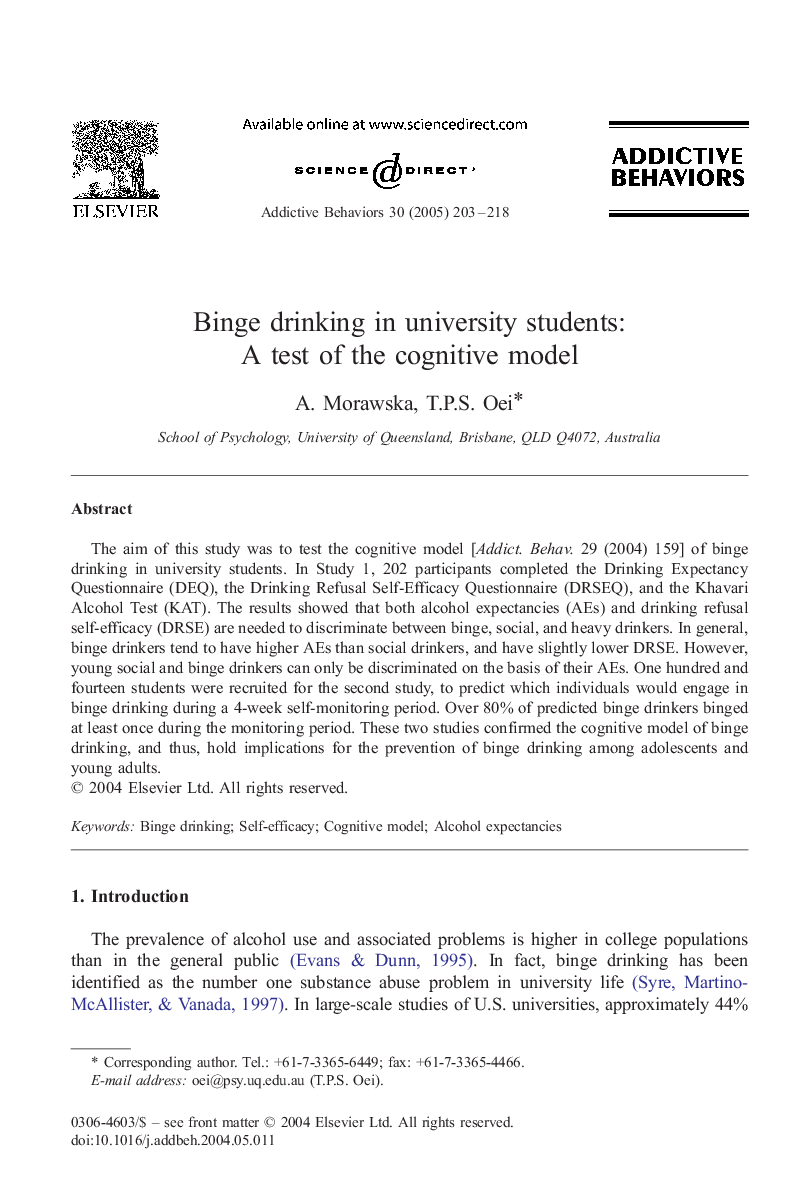| Article ID | Journal | Published Year | Pages | File Type |
|---|---|---|---|---|
| 10443581 | Addictive Behaviors | 2005 | 16 Pages |
Abstract
The aim of this study was to test the cognitive model [Addict. Behav. 29 (2004) 159] of binge drinking in university students. In Study 1, 202 participants completed the Drinking Expectancy Questionnaire (DEQ), the Drinking Refusal Self-Efficacy Questionnaire (DRSEQ), and the Khavari Alcohol Test (KAT). The results showed that both alcohol expectancies (AEs) and drinking refusal self-efficacy (DRSE) are needed to discriminate between binge, social, and heavy drinkers. In general, binge drinkers tend to have higher AEs than social drinkers, and have slightly lower DRSE. However, young social and binge drinkers can only be discriminated on the basis of their AEs. One hundred and fourteen students were recruited for the second study, to predict which individuals would engage in binge drinking during a 4-week self-monitoring period. Over 80% of predicted binge drinkers binged at least once during the monitoring period. These two studies confirmed the cognitive model of binge drinking, and thus, hold implications for the prevention of binge drinking among adolescents and young adults.
Related Topics
Life Sciences
Neuroscience
Behavioral Neuroscience
Authors
A. Morawska, T.P.S. Oei,
